
The initial case involved a juvenile cow that had suffered from a severe wound caused by a snare.
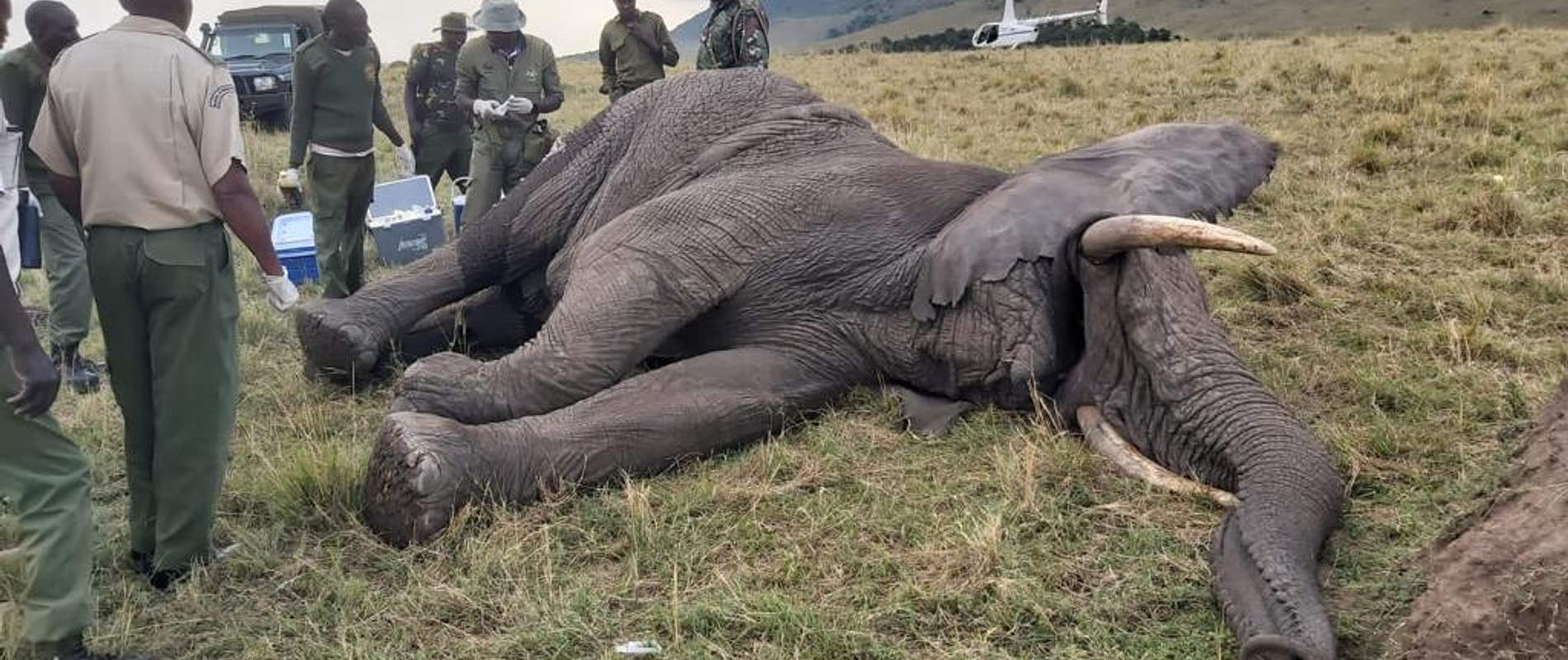
Two updates from the Mara came through to us on December 18th. Knowing that swift action was necessary, we activated Sky Vets – our special program that addresses urgent wildlife cases in hard-to-reach locations. Dr. Poghon, a seasoned KWS veterinarian who has collaborated with our Mobile Vet Units before, was immediately dispatched from Nairobi. After a quick flight to the Mara, he and his team were all set to get to work.

As we approached the calf, it was evident that something was terribly wrong. To our shock, we discovered that a wire snare had ensnared his head, cutting through his jaw and behind his ear. Although the injury was not fatal, it would eventually prevent him from feeding properly. The poor animal must have been in excruciating pain.

Administering treatment to a calf that relies on its mother’s milk adds a level of difficulty as the mother also needs to be sedated. This was the situation in the recent procedure, where Dr. Poghon successfully sedated the mother without any issues.

Initially, the task at hand was to remove the wire snare by cutting it off. However, dealing with the calf proved to be more difficult as he was quickly surrounded by his herd once his mother left him alone. This demonstrated the remarkable bond elephants have and made it tough for Dr Poghon to tranquilize him. Nonetheless, with his extensive expertise in the area, he was able to successfully administer the anesthetic.

Next, the squad started to take care of the injury that was left after the incident. They took off the wire snare and looked after the wound, which formed a disturbing circle around his head. If they had not taken any action, it could have resulted in fatal consequences. However, Dr. Poghon is confident that with prompt treatment, this little fellow will fully recover.

Thanks to quick action, the baby animal is anticipated to fully recuperate. The young animal had wandered off from its mother and had fallen around 250 meters away. The rescuers picked it up and brought it to its mother’s side so that they could awaken together. The calf woke up first and nudged its mother, who soon came to consciousness and embraced her little one. The two of them walked off hand in hand to join their herd.

Following their initial treatment of a small patient, the team took on a much larger challenge. Their second patient was a majestic bull located near the edge of the Mara Triangle. Together with rangers and staff from the Mara Conservancy and Anne K. Taylor Fund, they trekked a considerable distance through the forested valley to reach the animal.

As the sun began to set, the medical team jumped into action to tend to a wounded bull. The poor animal had suffered two deep wounds – one on its left front limb and another on its right rump. Upon inspection, it was clear that these injuries were most likely caused by spears. Thankfully, the team was able to clean and treat the wounds with ease, administering necessary medication to speed up the healing process. With the assurance of Dr Poghon, the bull was expected to regain full health. After a speedy recovery, the bull was back on its feet and ready to rejoin its herd.

Thankfully, there is good news about his health as well. Our team of Mobile Vet Units and Sky Vets strive to rescue and preserve the lives of all kinds of animals and preserve their natural habitats. The successful treatment of the baby elephant and bull is a testament to our mission, and we owe it all to the generous support of our donors. We also extend our gratitude to our partners in the Mara, including the Mara Conservancy, Mara Elephant Project, and Anne K. Taylor Fund, for working alongside us to give these animals a fresh start.
Big Life’s Craig Millar shared an account about an orphaned baby elephant found in Kimana. Due to the harsh drought, the calf was trapped in mud and too weak to escape. Fortunately, the Maasai community rescued the elephant from danger. Despite this, the situation remained grim as the young animal was unwell and collapsed upon reaching safety.
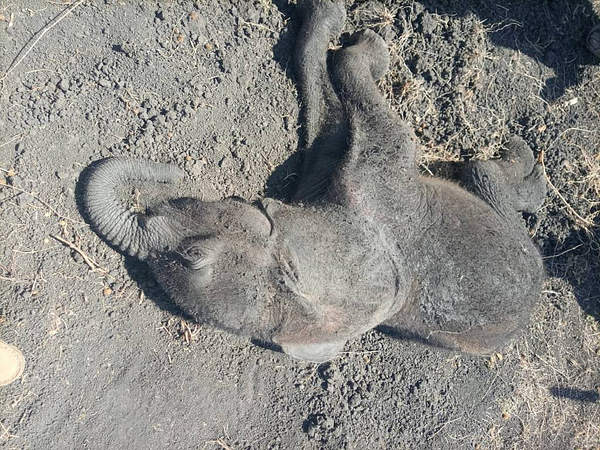
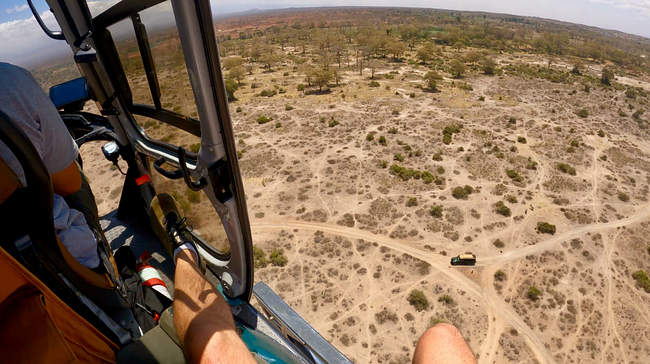
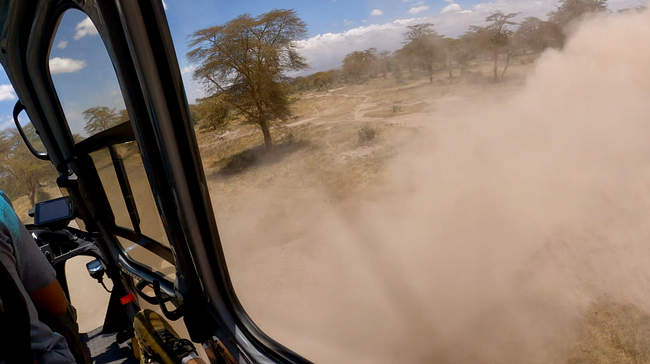
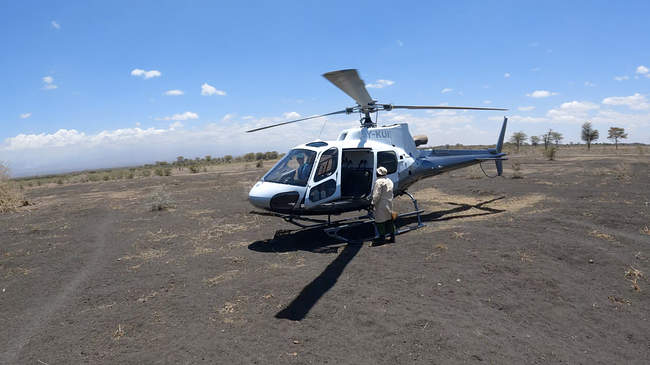
Realizing the urgency of the situation, we promptly assembled a rescue squad from our Kaluku Field Headquarters. Upon arrival in Kimana, they were met with a distressing scene that had become all too common due to the ongoing drought: an elephant lying motionless under the scorching sun.
The team was facing a challenging situation as they had to handle a pressing emergency in Amboseli while also taking care of a calf. They devised a strategy to resolve the issue by transporting Justus, one of their Keepers, and the calf to a peaceful location in Kimana Sanctuary. By settling the calf under a cool tree, they provided him with IV drips and entrusted his care to Justus while they attended to the other case.
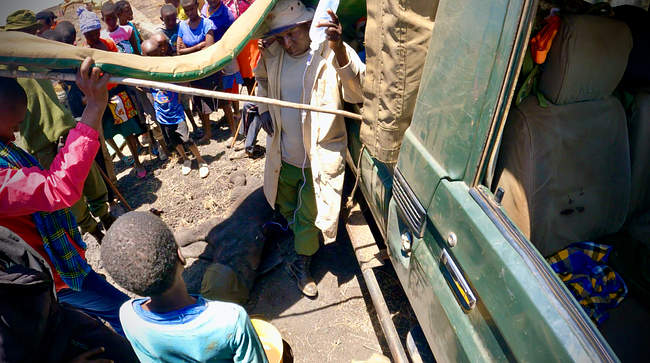
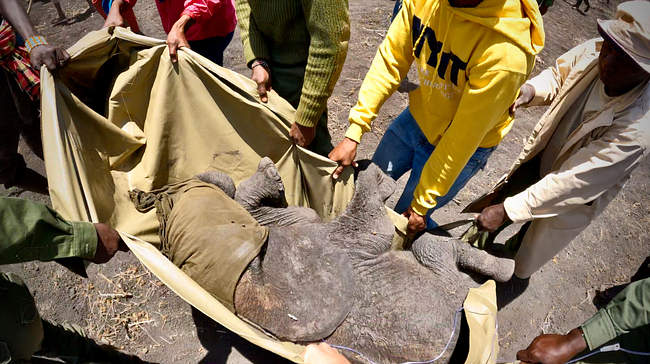
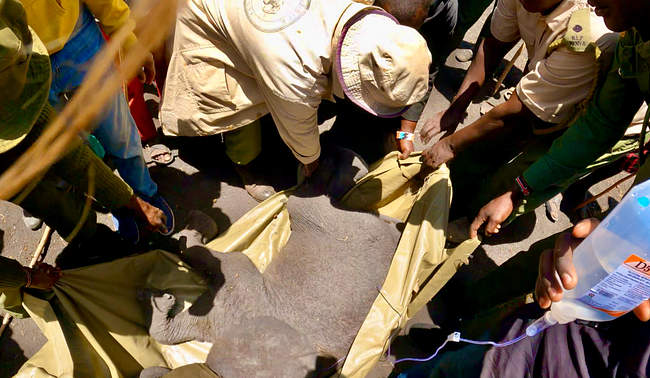
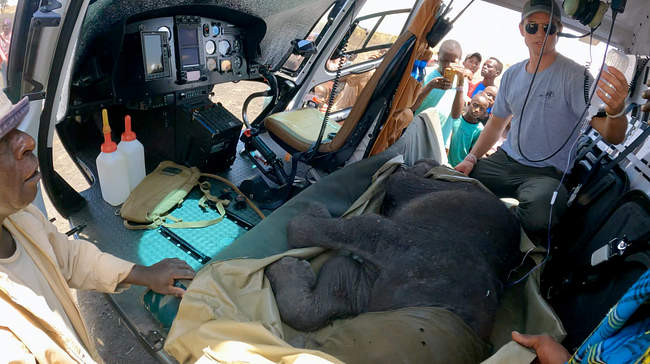
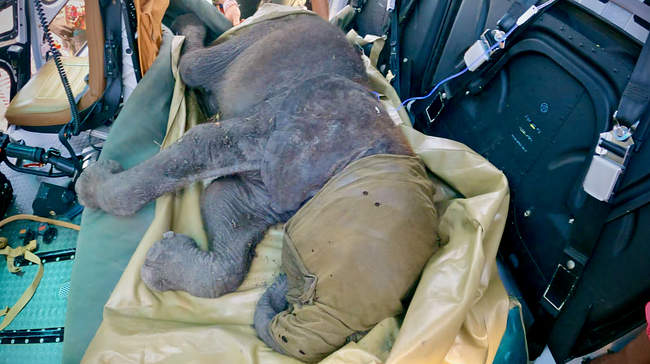
An hour after the helicopter left, the rescuers returned to a heart-stopping sight. The once-comatose baby was alive and well, walking around with Justus close behind, ensuring that the medical drips remained intact. Within a mere 60 minutes, the little orphan had gone from near-death to up and about, much to everyone’s amazement.
Justus was ecstatic and proudly declared, “He is my biting elephant!” As per protocol, Justus had examined the calf’s mouth to check if he had gone through teething. Despite the risks involved in such an investigation, Justus felt that the elephant’s unresponsiveness provided an ideal opportunity to conduct this test. To his surprise, the young creature chomped down on his finger, affirming that he did have teeth and proving that he was not as comatose as previously thought. Fortunately, Justus was quick to react and escaped without injury.

Upon his arrival at Kaluku Neonate Nursery, Mwinzi made quite the impression with his bold and confident demeanor. Despite being surrounded by larger animals such as buffalo, eland, giraffe, rhino, and other elephants, he fearlessly charged ahead and inserted himself into any gathering. This little bull certainly had a big attitude! Mwinzi quickly won over the hearts of everyone at the nursery, particularly Rokka, who adores fussing over him. He has also become friends with Mayan, much to Rokka’s dismay, who interrupts their bonding time. Mwinzi has truly exploded onto the scene and has brought out the nurturing side in those around him.

4 / 5
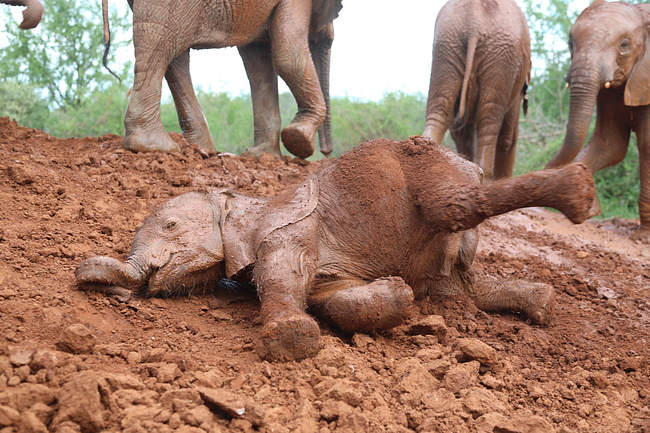
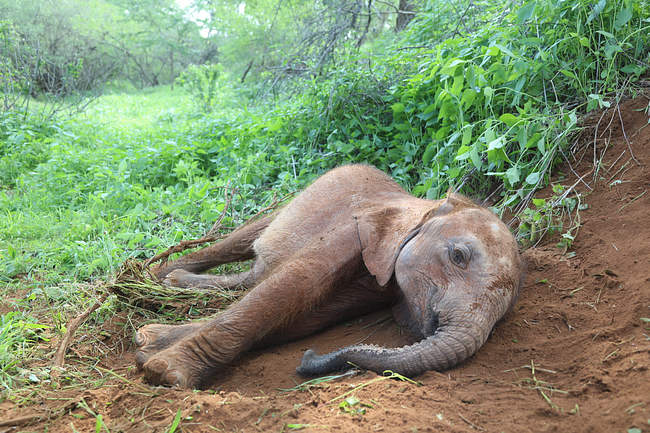
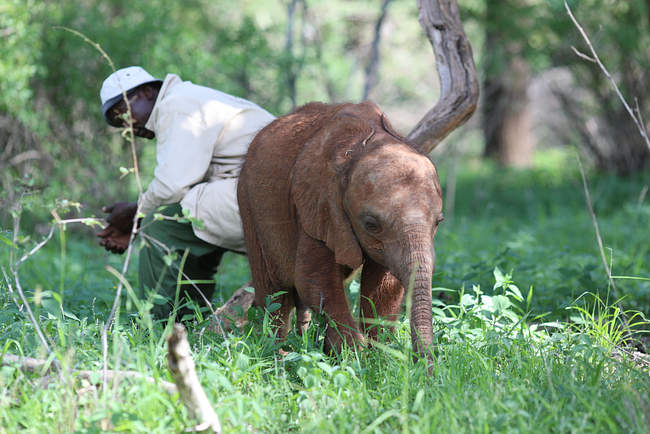
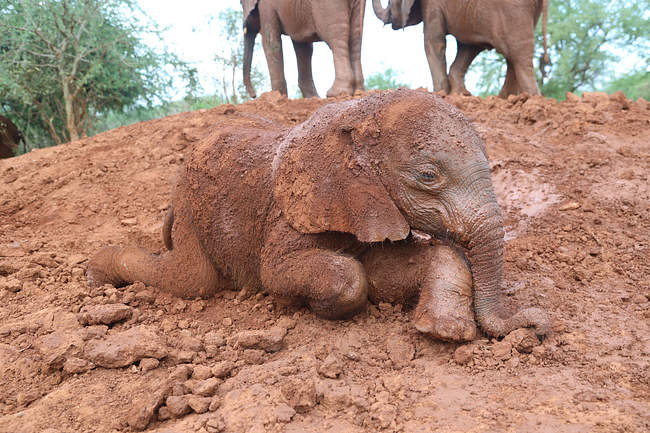

Raising neonates can be a challenging task, and Mwinzi was no exception. Despite having a couple of molars grown in when he was rescued, he still struggled with teething. However, surprisingly, Mwinzi sailed through without any significant issues. The reason behind his success was his eagerness to eat greens from the beginning. Even though he was dependent on milk, the nutrients from the greens helped him stay healthy and strong during the teething stage. While some neonates may face difficulties, Mwinzi’s story shows the importance of nutrition in their survival.

1 / 5
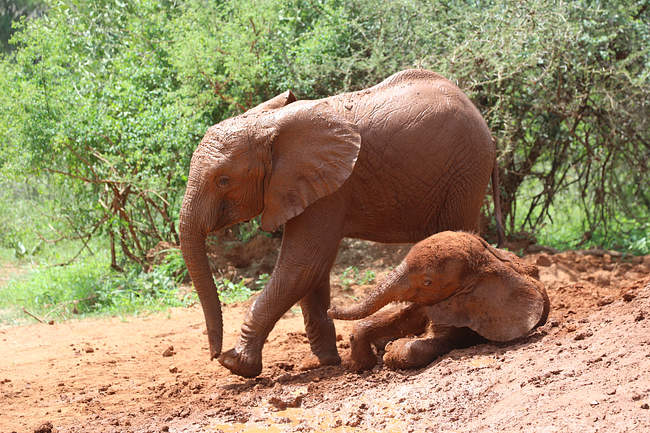
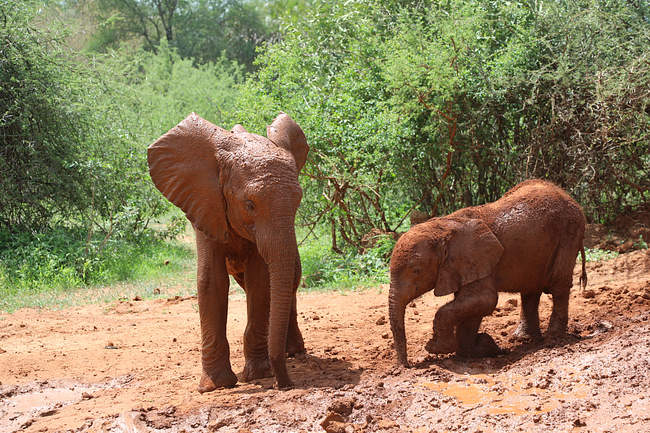
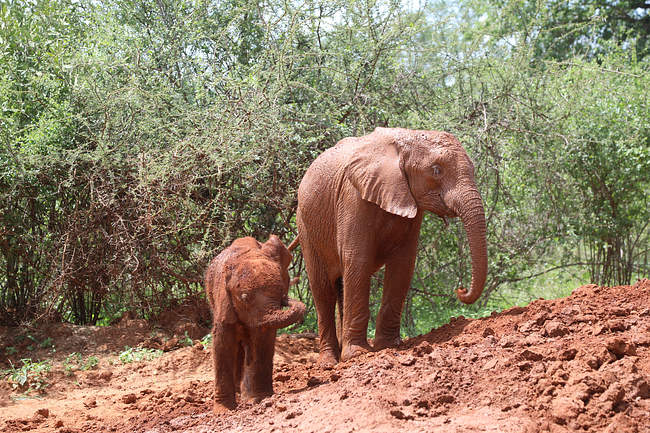
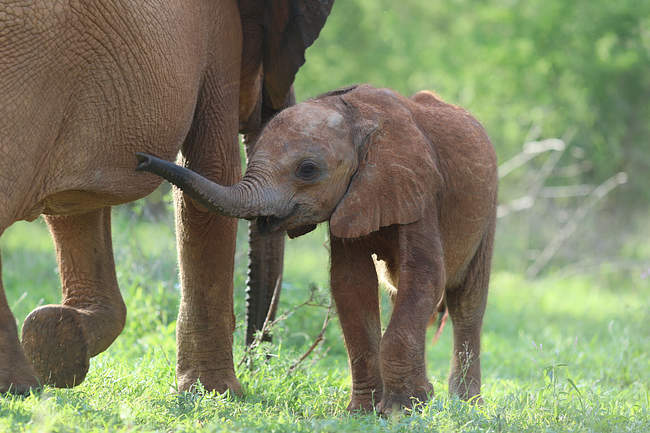
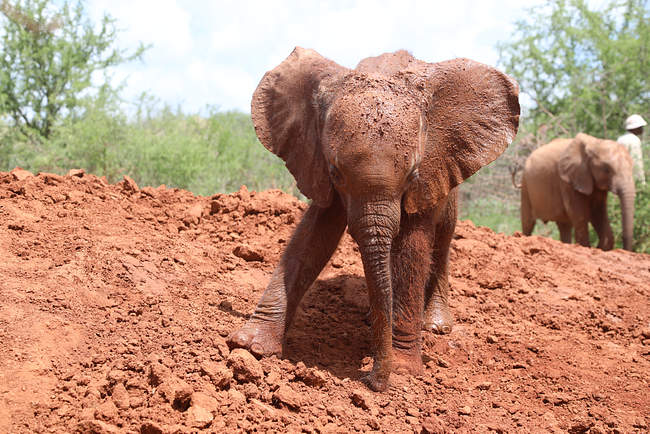
It is highly possible that Mwinzi had a taste for greens even prior to his rescue. It is likely that his mother, who was deprived of nutrients due to the prolonged drought, stopped producing milk. Being surrounded by elephants munching on greens, Mwinzi resorted to opportunistic eating to survive. This instinctive behavior ultimately allowed him to pull through.

The days of deprivation for Mwinzi are now a thing of the past. He now has a consistent supply of milk, but his love for greens remains unmatched. Unlike other orphans of his age who nibble on branches with varying degrees of interest, Mwinzi savors every bite with unbridled joy. He throws tantrums and knocks on the door until his Keepers provide him with a sufficient amount of greens if his stable is not filled to the brim with them. When you peek inside his bedroom, which looks like a jungle, it is difficult to spot the small elephant enjoying his food amidst all the leafy branches. It is no surprise that he has become adorably chubby due to his love for food.

In the recent year, we have experienced an abundance of unfortunate events that we wish we never had to witness. On the other hand, we have also encountered some incredible wonders, and one of them is Mwinzi. This extraordinary bull’s name is derived from Mawenzi, one of the tallest peaks of Mount Kilimanjaro. The name not only acknowledges the impossible challenges that Mwinzi has conquered but also honors the location where he originated.
